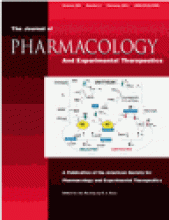Abstract
Adenosine (ADO) is a homeostatic inhibitory autocoid that is released at sites of inflammation and tissue injury, and exerts anti-inflammatory effects via multiple interactions at ADO receptor subtypes. Inhibition of ADO kinase (AK) increases extracellular ADO concentrations and AK inhibitors have demonstrated ADO-mediated anti-inflammatory effects in acute models of inflammation. To evaluate the potential utility of this approach in chronic inflammation, a novel, potent, and selective non-nucleoside AK inhibitor, ABT-702, was tested in the rat adjuvant arthritis model. Animals were immunized with complete Freund's adjuvant on day 0 and were treated with vehicle or ABT-702 (20 mg/kg/b.i.d. p.o.) beginning on day 8. ABT-702 significantly inhibited arthritis as determined by paw volume. In addition, histologic and radiographic evidence of bone and cartilage destruction was significantly decreased in the treated group. Coadministration of the ADO receptor antagonist theophylline attenuated the anti-inflammatory effects of ABT-702, suggesting that this action was mediated through endogenous ADO release. To evaluate the mechanism of chondroprotection, Northern blot and electrophoretic mobility shift assays were performed on joints samples. These studies demonstrated that ABT-702 suppressed collagenase and stromelysin gene expression in treated animals. In addition, the activator protein-1 and nuclear factor-κB binding activity was also decreased. Therefore, ABT-702 inhibited clinical, radiographic, and histologic evidence of chronic inflammatory arthritis. The mechanism of joint protection is likely related to suppressed transcription factor activation and matrix metalloproteinase gene expression.
Footnotes
- Received August 17, 2000.
- Accepted October 17, 2000.
-
Send reprint requests to: Gary S. Firestein, M.D., Division of Rheumatology, Allergy and Immunology, University of California San Diego School of Medicine, Mail Code 0656, 9500 Gilman Dr., La Jolla, CA 92093-0656. E-mail: gfirestein{at}ucsd.edu
-
↵1 Present address: Signal Pharmaceuticals, Inc., San Diego, CA.
-
This study was supported in part by a grant from Abbott Laboratories.
- The American Society for Pharmacology and Experimental Therapeutics
JPET articles become freely available 12 months after publication, and remain freely available for 5 years.Non-open access articles that fall outside this five year window are available only to institutional subscribers and current ASPET members, or through the article purchase feature at the bottom of the page.
|






